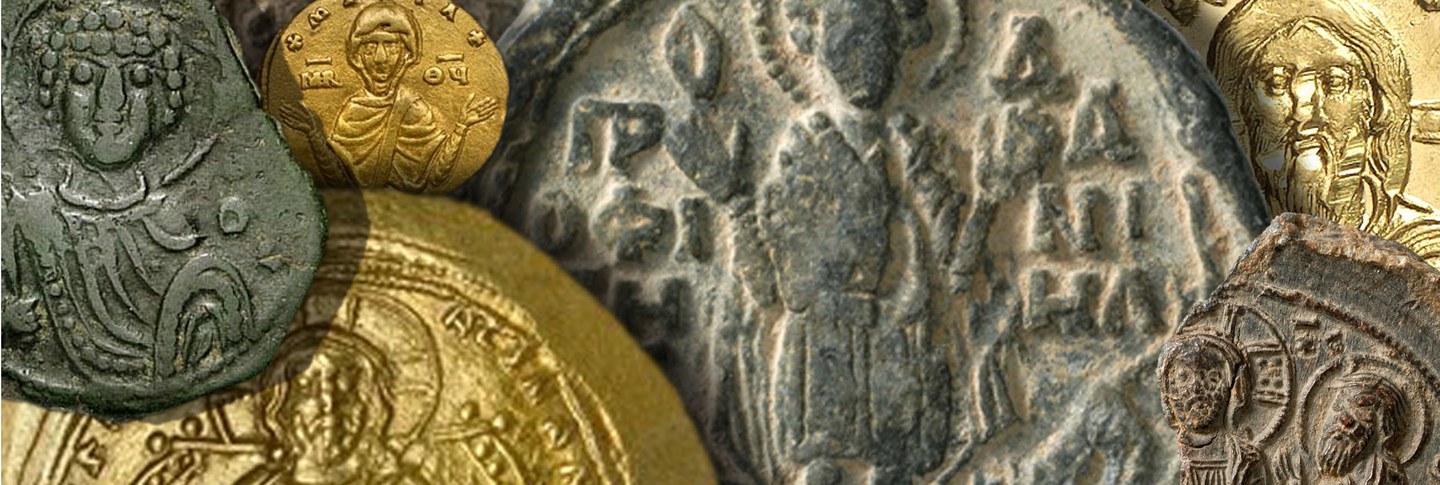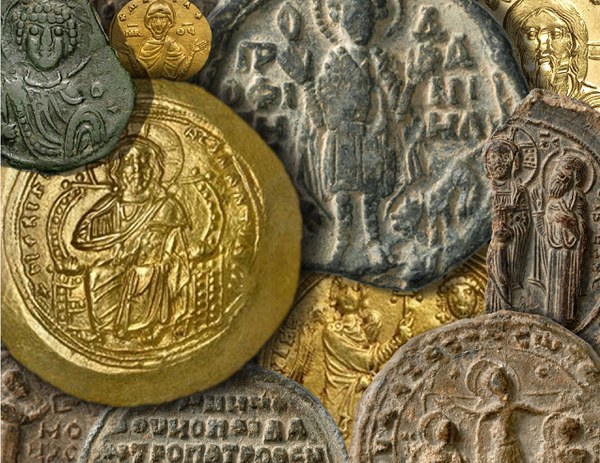Dumbarton Oaks and the Dumbarton Oaks Medieval Library (DOML) are sponsoring or cosponsoring four sessions of papers and a film screening and roundtable discussion at the 53rd International Congress on Medieval Studies at Western Michigan University on May 10–13, 2018. Paper proposals are due September 15, 2017.
Topics in Byzantine Sigillography
Lead seals constitute one of the most important and numerous sources for Byzantine social and administrative history, and they are fundamental for the study of the aristocracy, of provincial and palatine institutions, and of personal piety. Seals themselves are also an object of inquiry, and research over the past half-century into their production and use has allowed scholars to employ them as primary sources in more varied and nuanced ways. Despite their importance as both historical sources as well as relatively prevalent Byzantine artifacts, seals rarely form the focus of sessions at general conferences for medieval and Byzantine studies. In addition to sigillographers and Byzantinists, we hope that this session will draw other medievalists, who may learn more about the specific methods of Byzantine sigillography, and who may provide insight into comparative approaches in medieval studies. This proposed session is open to papers that study seals from a material perspective, as well as to those whose argument is based primarily on evidence from lead seals.
Submit proposals to Jonathan Shea at seals@doaks.org.
Topics in Byzantine Numismatics
Cosponsored with Princeton University Numismatic Collection
Byzantine numismatics is one of the oldest disciplines of Byzantine studies, one that has contributed not only to economic but also social, religious, commercial, and institutional history. As mass-produced, widely circulated, objects created by the Byzantine government, coins shed light on the priorities of individual rulers as well as dynasties. As artifacts with an archaeological context, coins allow us to analyze evolving economies, exchange networks, spheres of economic influence, and the movement of goods and individuals. Byzantine numismatics is a flourishing subset of the wider discipline which compliments and extends other areas of inquiry, and is of relevance not only to Byzantinists, but all those who study the medieval world. The proposed sessions are open to papers that study coins and seals from a material perspective, as well as to those whose argument is based primarily on evidence from coins and seals. In addition to sigillographers, numismatists, and Byzantinists, we hope that these sessions will draw other medievalists, who may learn more about these fascinating artifacts of Byzantine material culture, and who may provide insight into comparable approaches in medieval studies.
Submit proposals to Jonathan Shea at seals@doaks.org.
Teaching with Translations
As medievalists we place a premium on original-language research, and yet in the classroom we habitually rely on translations. Today the pedagogic side of this divide is undergoing revolutionary changes thanks to the proliferation of translations in print and on the internet. This new range of choices forces us to confront questions about the role of translation in the classroom. To choose between, let’s say, a poetic paraphrase and a literal prose rendering is to privilege one pedagogic method over another.
It’s not that such questions have never crossed our minds before, but they had less urgency when teachers had fewer alternatives. The pedagogy is implicit, for example, when instructors single out key words in the original for special explication, which has the advantage of putting our training to good use. As a time-honored tactic the rhetorical move of saying “let me tell you what this word really means” has the appeal, for students, of gaining privileged access to inside knowledge, but at the same moment it generates a shared suspicion because the translation doesn’t convey what the original says.
This session has both a theoretical and practical focus. What is the role of translation in the classroom? Is one kind of translation preferable to others? How does the relation between original and translation change from one discipline to another? From one genre to another? Is there an advantage to showing the original along with the translation even if students lack the competence to read it?
Submit proposals to Daniel Donoghue at dgd@wjh.harvard.edu.
Encountering Muhammad in the Latin West
Sponsored by Platinum Latin
“Encountering Muhammad in the Latin West” is inspired by the forthcoming publication in the DOML series of Julian Yolles’s Latin Lives of Muhammad. The panel will examine the nature of Christian Latin encounters with Muhammad, exploring in the process how Latin Christians understood such concepts as “religion” and “heresy,” how they viewed the origins of Islam in relation to that of Christianity, what sorts of engagement with cultural and religious “Others” they promoted, and how the image of Muhammad in medieval sources became the predominant model for Early Modern authors. While the panel will focus primarily on textual encounters, the appearance of such confrontations in literature, art, and religious polemic, and across such diverse regions as medieval Iberia, France, Italy, and the Crusader States, should make this panel relevant to a wide range of medievalists, including scholars of history, literature, religious studies, art history, and intellectual history.
Submit proposals to Gregory Hays at bgh2n@virginia.edu.
Juggling the Middle Ages
sponsored by the Medieval Institute, Western Michigan University
The objective of this event is to bring home the values of studying medievalism and of integrating that study with medieval studies. The heart of this event will be a screening, roughly one-half hour long, of two clips from the early 1950s. The first will be the Terrytoons cartoon of R. O. Blechman’s “The Juggler of Our Lady,” the second the same story as performed on The Fred Waring Show. Ziolkowski will introduce the medieval story (first attested as an Old French poem and later as a Latin exemplum) and its modern reception (concentrating upon the scholarship of Gaston Paris, short story of Anatole France, opera of Jules Massenet, and later versions). The upcoming exhibition Juggling the Middle Ages that will debut at Dumbarton Oaks in DC from October 2018 through February 2019 also will be briefly introduced. The rest of the session will be given over to a roundtable on medievalism, taking the screening as its point of departure, with Richard Utz (Georgia Institute of Technology) and Elizabeth Emery (Montclair State University).

